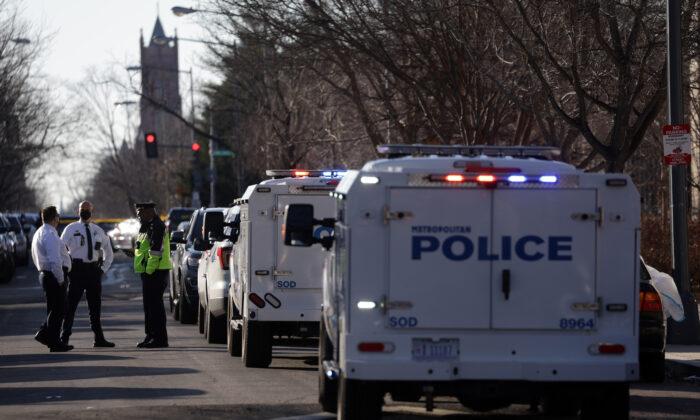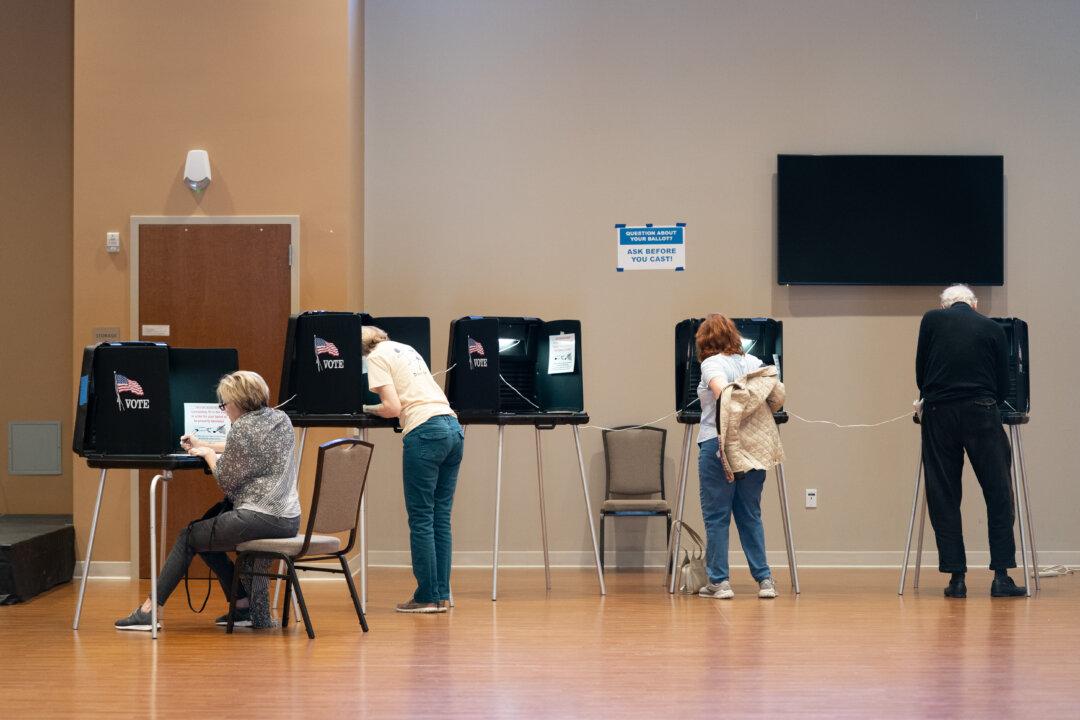The U.S. prosecutor for the nation’s capital is defending his office for not prosecuting the majority of arrests made by officers in the city.
Prosecutors under U.S. Attorney for the District of Columbia Matthew Graves declined to prosecute 67 percent of people arrested by police, including 53 percent of felony cases. That was higher than many years in the past. In 2015, for instance, the same office prosecuted 65 percent of those arrested.
Graves, an appointee of President Joe Biden, blamed several factors, including that the D.C. Department of Forensic Sciences lost certification in 2021, adding costs for the analysis of evidence.
Prosecutors also are spending more time reviewing body-camera footage from officers and are finding that the information often doesn’t support prosecution, according to Graves.
He defended the increase in declined prosecutions, pointing out that most of them follow arrests for crimes such as gun possession and burglary, and not violent crimes such as homicide.
Deborah Sines, a retired federal homicide prosecutor, said that the U.S. Attorney’s Office often chooses only to take on cases they’re guaranteed to win.
“I would get angry when I would see defendants in homicide cases in front of me who had previous gun possession charges that a prosecutor had previously dismissed,” Sines told the Post. “Some cases are going to be challenging, yes. But that’s your job. Do your job. Don’t just dismiss it just because the evidence is not everything you want it to be or think it should be.”
Testifying before a congressional panel on March 29, Washington City Council Chairman Phil Mendelson, a Democrat, noted how many cases the U.S. Attorney’s Office isn’t prosecuting as he called for more funding for the office.
“To reduce crime, arrests must be prosecuted. The U.S. Attorney for the District is responsible for the prosecution of all felonies. Yet they do not have adequate staff to prosecute all cases, which adversely affects our public safety,” he said.
Councilmember Charles Allen said the U.S. attorney, because he is federally appointed, is “entirely unaccountable to District residents.”
Police Chief Speaks Out
As the rate of homicide rises in Washington, Robert Contee, the chief of the city’s Metropolitan Police Department, said that the best way to prevent killings is to keep criminals in prison.“What we’ve got to do, if we really want to see homicides go down, is keep bad guys with guns in jail,” he told reporters during a recent press conference with Mayor Muriel Bowser, another Democrat.
“When they’re in jail, they can’t be in communities shooting people,” he added. “That’s the thing that we need to do different. We need to keep violent people in jail.”
The average homicide suspect has 11 prior arrests, according to Contee.
Councilwoman Brianne Nadeau, also a Democrat, said, “[I am] angry that we still don’t have the support we need from our federal partners to get these cases prosecuted and to get harmful people off the street.”
Greggory Pemberton, chairman of the D.C. Police Union, said that the number of arrests before a homicide stems primarily from criminal penalties in the district being “incredibly weak,” in part due to code changes passed by the City Council.
When Rep. Virginia Foxx (R-N.C.) asked whether lawmakers need to tighten up the penalties, Pemberton said that they do and that the police force needs more officers, after losing hundreds in recent years.





